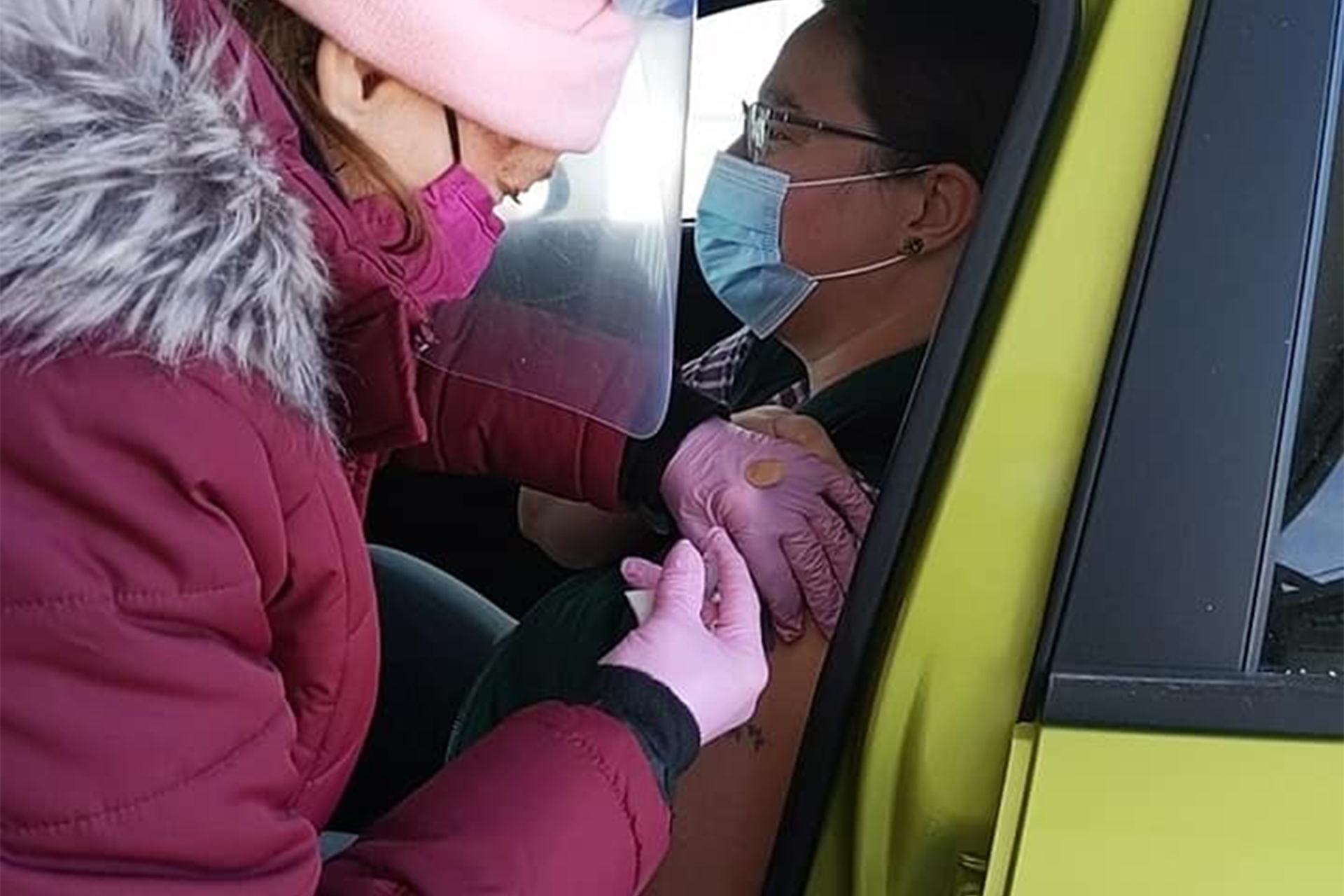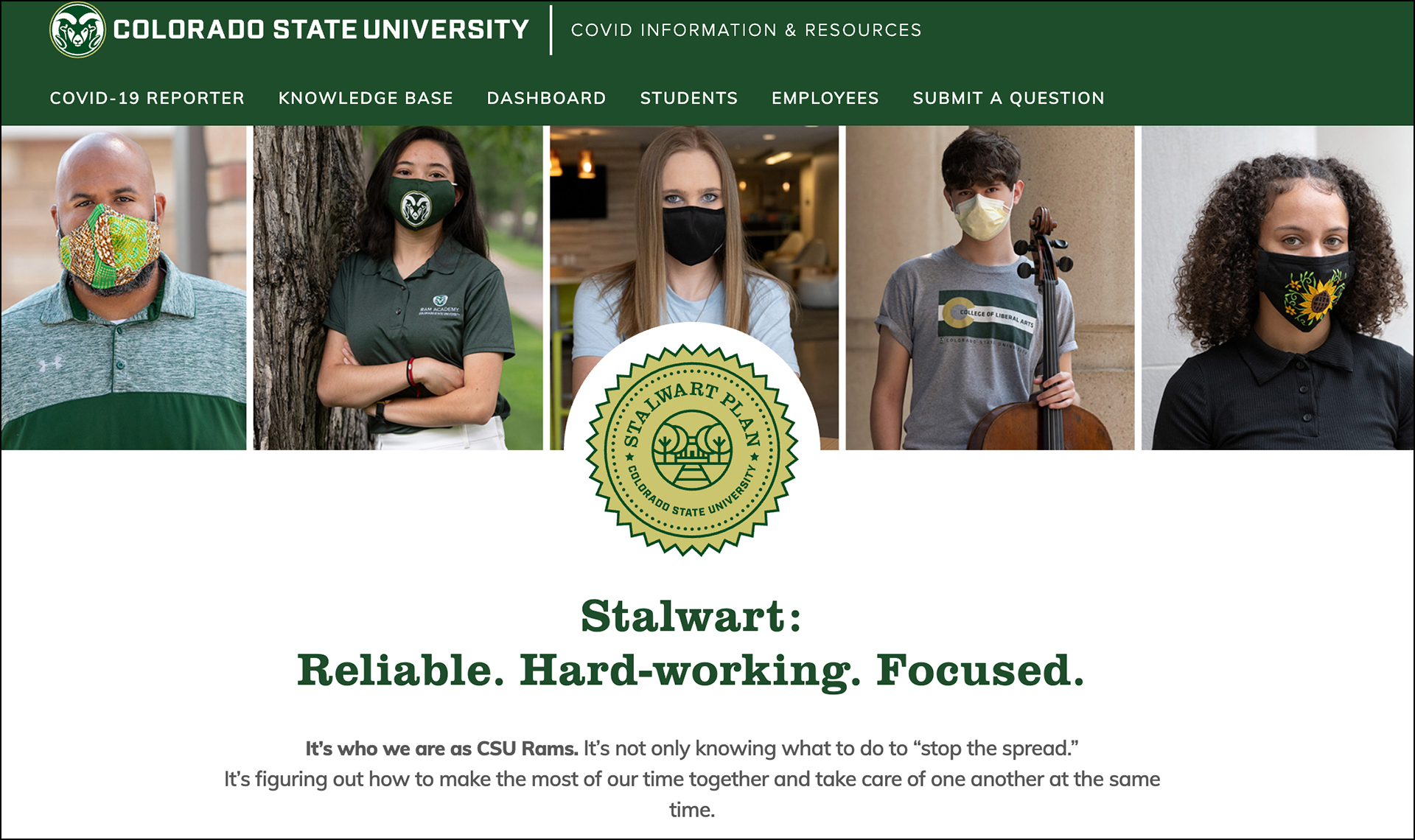
During a virtual town hall Jan. 15, Colorado State University leaders welcomed students and faculty to the Spring 2021 semester and outlined the university’s sustained efforts around teaching and learning, even as year 2 of the COVID-19 pandemic arrives.
The meeting, open to all but limited to 500 participants by Zoom capacity, was hosted by the Office of the President.
Second Town Hall
Due to high demand, a second virtual town hall with the same information will be hosted Thursday, Jan. 21, 4-5 p.m.
Questions may be submitted prior to the event.
A recording has been posted on the COVID Information and Resources website.
CSU President Joyce McConnell repeatedly acknowledged the legions of administrators, faculty and staff – from the Pandemic Preparedness Team to the Research Continuity and Recovery Team – for their round-the-clock efforts since the pandemic began. From adapting to online teaching to managing COVID-19 screening and ramping up surveillance testing, the efforts have been coordinated and collaborative between units.
McConnell also thanked the students for their near-universal compliance with public health, quarantining and social distancing guidelines last semester. Students’ commitment was critical to keeping CSU open, with no known transmission of the virus in classroom settings.
“We have a lot to be proud of,” McConnell said.
Here are highlights from the town hall, and links to more information on each topic covered.
Testing
Marc Barker, assistant vice president for safety and risk services and co-chair of the Pandemic Preparedness Team, reviewed new protocols for testing and screening. (Free) weekly saliva screening is now mandatory for all students in residence halls, as well as a large swath of the faculty and staff population.
Any student, faculty or staff member who is not required to screen may still participate in screening as often as they wish, including Extension, Forest Service and Agricultural Experiment Station employees.
Those experiencing symptoms or who believe they have been exposed should report them through the COVID Reporter.
Academics

Mary Pedersen, provost and executive vice president, shared plans for phased re-introduction of in-person learning this semester, which began entirely online Jan. 19 and will move to in-person instruction for select courses on Jan. 25. On or around Feb. 5, faculty scheduled to teach hybrid classes – with both in-person and online modalities – will receive updates on those plans, based on Larimer County public health guidelines.
Spring break is later than normal, April 10-18, and all courses will move online for the remainder of the semester after break.
More information on the phased 2021 spring schedule
Kelly Long, vice provost for undergraduate affairs, outlined efforts at teaching continuity. Faculty should communicate with students before courses convene, regardless of their modalities, and students should check RamWeb for information on instruction methods. Like last semester, students will have the option of satisfactory/unsatisfactory grades, as well as course withdrawal extensions. To support ongoing contact tracing, faculty should also complete seating charts with a new online tool through the Office of the Registrar.
More information from the Teaching Continuity and Recovery Team.
Student resources
Blanche Hughes, vice president for student affairs, encouraged students to stay engaged with their academics and extracurricular activities and reviewed offices and programs available to help them navigate the semester, including mental health resources. For students required to quarantine if they’re exposed to or have COVID-19, Hughes said those residents will continue to receive services like transportation and delivery of meals.
Although all coursework will move online after spring break, students will have the option to stay in their residence halls from April 19-May 14 but must receive approval from Housing and Dining Services.
More information from the Office of Student Affairs
Faculty and staff
Addressing the needs of staff, McConnell encouraged supervisors to remain “flexible and compassionate” toward employees who are working through childcare concerns or caring for sick loved ones.
“We know this has been an incredibly challenging time,” McConnell said. “We want our faculty and staff to know how committed we are to your welfare, whether it’s physical or mental.”
Vaccination

Lori Lynn, executive director of the CSU Health Network and co-chair of the Pandemic Preparedness Team, updated the community on the COVID-19 vaccine, which is in high demand and short supply nationwide. No vaccine is currently available on campus, but some key essential employees have been or will soon be vaccinated through Larimer County. Lynn and other leaders are working now to establish vaccine prioritization and administration on campus. They anticipate several months before enough vaccine is available for the entire campus, likely after the end of the semester.
More information on the vaccine rollout: COVID-19 vaccinations begin for CSU community
COVID-19 resources

Check the COVID Information and Resources website for more announcements and information as the semester continues.
Forever Stalwart: Rising Above the Pandemic
This article is part of the “Forever Stalwart: Rising Above the Pandemic” series, telling the inside stories of how the CSU Ramily has rallied its brilliant minds, great hearts, creativity and collaborative spirit to continue its land-grant mission and overcome the challenges of COVID-19 with innovation and resilience.